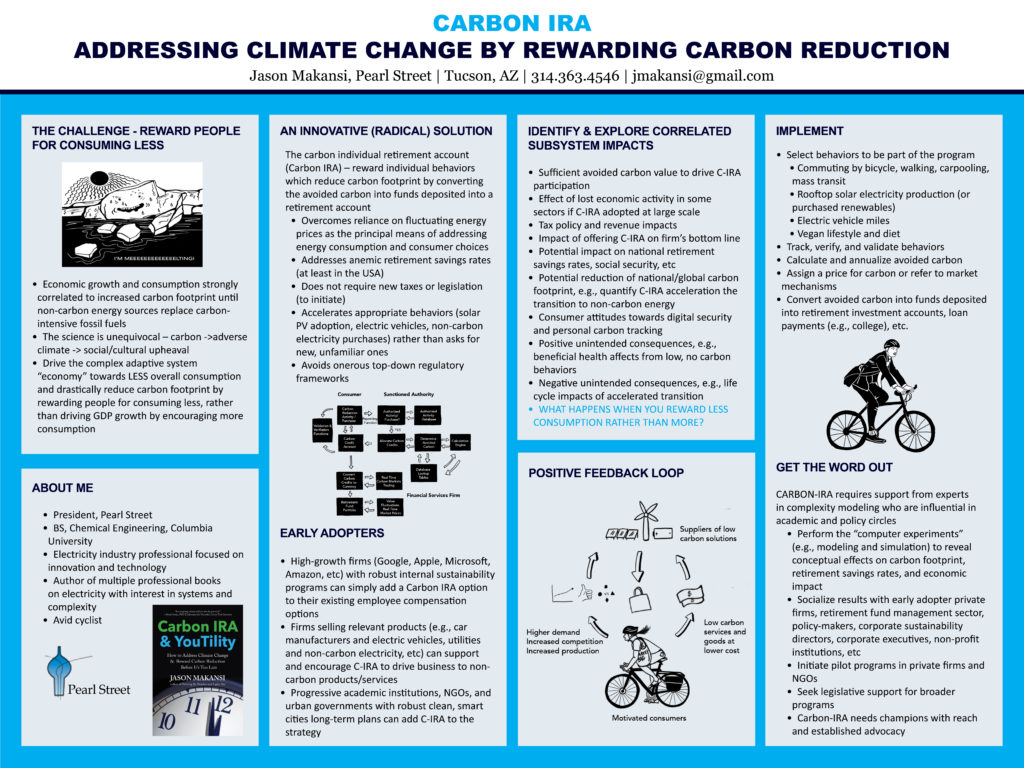…and when is data mining and analysis just a sophisticated, math-laden opinion?
I like to draw insight from juxtapositions. Yesterday, I listened to half a dozen academic presentations on modeling and data mining aimed at understanding the impact of extreme weather on global communities. As you might imagine, these exercises require large data sets, bold […]
…and when is data mining and analysis just a sophisticated, math-laden opinion?
I like to draw insight from juxtapositions. Yesterday, I listened to half a dozen academic presentations on modeling and data mining aimed at understanding the impact of extreme weather on global communities. As you might imagine, these exercises require large data sets, bold assumptions, and extrapolations, some out to as far as year 2100.
Later in the day, I sat at the piano with a blog post about Debussy’s Arabesque No. 1 for solo piano, a popular piece known for its “impressionistic” qualities. The author of the blog did some analysis on melody, harmony, and rhythm that essentially was trying to get into Debussy’s head as he composed this piece.
The blog author teased out a melody buried in some arpeggios and then attempted to show how it becomes a motif throughout the piece. She admitted she couldn’t really know whether this melody was Debussy’s intent, but made an assumption that this certainly could have been what was going through Debussy’s head.
The academic data mining and modeling would probably be scary to those who aren’t comfortable with numerical modeling and methods; the analysis of Arabesque No. 1 would probably be scary to those not familiar with musical notation and compositional methods. The assumptions and extrapolations made in both cases could make nervous anyone familiar with both.
In both cases, a “specialist” is trying to gain insight into something that, for all practical purposes, is unknowable – Debussy’s thought process (even if subconscious) as he composed Arabesque No. 1 and economic and community impacts as the planet warms over the coming decades – and then convince an audience that they’ve indeed shed some light into a dark cave. And if we are to take either analysis as useful, others would have to validate the findings, or otherwise agree on the methodology, results, and conclusions.
Moral of this tale: Analysis isn’t “new knowledge,” regardless of what kind of notation accompanies it, until many other experts weigh in and many analyses converge on similar conclusions. And just because someone has credentials that brand him or her a specialist, doesn’t mean their analysis is more than a sophisticated opinion.
What really astounds me about listening to academic presentations these days (which I have been doing my entire career) is how few people, usually experts with as much background and experience on the topic as the presenter, actually question the results or methodology. This to me is dangerous at its core. Academia is where data and findings should be vigorously interrogated and debated. These days, technical presentations in general seem to be more of an advertising opportunity than a spark for debate towards achieving some consensus and contribution to the knowledge base.
How I arrived at the Carbon IRA (individual retirement Account)
I’m thinking maybe a little more context is necessary for people to “get” the Carbon IRA (individual retirement account) concept and why my book, Carbon IRA + YouTility: How to Address Climate Change and Reduce Carbon Footprint Before Its Too Late, has such salient […]
How I arrived at the Carbon IRA (individual retirement Account)
I’m thinking maybe a little more context is necessary for people to “get” the Carbon IRA (individual retirement account) concept and why my book, Carbon IRA + YouTility: How to Address Climate Change and Reduce Carbon Footprint Before Its Too Late, has such salient messages.
A chemical engineering education and electricity industry career pretty much makes you a systems person. You think in terms of systems, boundaries, and surroundings. After several decades in the electricity and energy sectors, and wrestling with the macro-carbon footprint challenge, I finally realized a few things weren’t going to change anytime soon:
- Economic growth is predicated on buying and consuming stuff
- Low cost energy supports economic growth
- Carbon-laden fossil fuels are the backbone of low-cost energy, especially electricity
- Therefore, carbon is the ultimate externality – the environmental impact that isn’t properly reflected on the accounting ledger
- Thus, until carbon-free energy replaces fossil fuels, we are doomed to aggravate carbon-induced climate disruption.
These aren’t immutable “truths” like the laws of thermodynamics. But they sure have been immutable in my lifetime. At least globally. So the “problem statement” is pretty straightforward.
When my two daughters were in high school and college, we had many dinner conversations about dad’s job (electricity industry) and climate change (what my daughters were having nightmares about). I kept saying, until everyone on the planet learns to consume less and we accelerate the transition to renewable energy sources, it will get worse before it gets better. And it has.
So we came up with this slogan. Think:Less! Note the double meaning. Think less, or simplify how you think about global climate change. Think about consuming less stuff. Period. End of Story. We even made a stack of bumper stickers!
Of course, no one really knew what the hell we were talking about. But it led me to the more important challenge. Environmentalists have been preaching the three Rs – reduce, recycle, reuse – in my memory ever since the first Earth Day in 1970. By the new millennium, that still wasn’t working.
After more dinner conversations, I had an epiphany.
- You have to reverse the growth-at-any-cost economic mantra
- One approach is to reward behavior and consumer choices which result in less carbon
- If you make the behaviors permanent, you can make progress on carbon and climate
- You can’t depend on volatile energy price signals to sustain these behaviors
- Converting the avoided carbon into money is a bona-fide incentive
- Putting the money towards a retirement account encourages a lifetime of better behaviors and choices.
Hence, the carbon IRA concept was born. It turns traditional economics inside out. Since nothing else seems to be working fast enough, maybe it’s time for a radical departure?
It was a honor to be selected to participate in the New England Complex Systems Institute International Conference on Complex Systems (ICCS2020) in July 2020 and present the Carbon Individual Retirement Account (Carbon IRA) concept. Here’s the poster I presented:
It was a honor to be selected to participate in the New England Complex Systems Institute International Conference on Complex Systems (ICCS2020) in July 2020 and present the Carbon Individual Retirement Account (Carbon IRA) concept. Here’s the poster I presented:

Recent Posts
- What Debussy, data mining and modeling have in common…
- Turning Traditional Economics Inside Out
- C-IRA Poster for the International Conference on Complex Systems
- The lack of error and uncertainty analysis in our science and technical communications is as pernicious as the ‘partisan divide’
- It’s just not that hard: Earth Day at 50
Recent Comments
- jmakansi on When a Favorite Short Story Expands to a Novel…
- Ronald Gombach on When a Favorite Short Story Expands to a Novel…
- Kathy Schwadel on When a Favorite Short Story Expands to a Novel…
- jmakansi on So Vast the Prison: Takes No Prisoners Regarding the Universal Plight of Women
- Elena on So Vast the Prison: Takes No Prisoners Regarding the Universal Plight of Women
Archives
- September 2020
- August 2020
- July 2020
- April 2020
- March 2020
- July 2017
- June 2017
- April 2017
- March 2017
- January 2017
- July 2016
- May 2016
- November 2015
- October 2015
- August 2015
- May 2015
- March 2015
- January 2015
- November 2014
- September 2014
- August 2014
- July 2014
- June 2014
- May 2014
- April 2014
- March 2014
- February 2014
- January 2014
- December 2013
- November 2013
- August 2013
- July 2013
- June 2013
- April 2013
- February 2013
- January 2013
- November 2012
- October 2012
- September 2012
- August 2012
- March 2012
- November 2011
- October 2011
- July 2011
- June 2011
- December 2010
- November 2010
- March 2010
- January 2010
- December 2009
- November 2009
- October 2009
- September 2009
- August 2009
- Error gathering analytics data from Google: Error 404 (Not Found)!!1 *{margin:0;padding:0}html,code{font:15px/22px arial,sans-serif}html{background:#fff;color:#222;padding:15px}body{margin:7% auto 0;max-width:390px;min-height:180px;padding:30px 0 15px}* > body{background:url(//www.google.com/images/errors/robot.png) 100% 5px no-repeat;padding-right:205px}p{margin:11px 0 22px;overflow:hidden}ins{color:#777;text-decoration:none}a img{border:0}@media screen and (max-width:772px){body{background:none;margin-top:0;max-width:none;padding-right:0}}#logo{background:url(//www.google.com/images/branding/googlelogo/1x/googlelogo_color_150x54dp.png) no-repeat;margin-left:-5px}@media only screen and (min-resolution:192dpi){#logo{background:url(//www.google.com/images/branding/googlelogo/2x/googlelogo_color_150x54dp.png) no-repeat 0% 0%/100% 100%;-moz-border-image:url(//www.google.com/images/branding/googlelogo/2x/googlelogo_color_150x54dp.png) 0}}@media only screen and (-webkit-min-device-pixel-ratio:2){#logo{background:url(//www.google.com/images/branding/googlelogo/2x/googlelogo_color_150x54dp.png) no-repeat;-webkit-background-size:100% 100%}}#logo{display:inline-block;height:54px;width:150px} 404. That’s an error. The requested URL /analytics/v2.4/data?ids=ga:66373148&metrics=ga:pageviews&filters=ga%3ApagePath%3D%7E%2Ftag%2Fclimate-change%2F.%2A&start-date=2024-03-28&end-date=2024-04-27 was not found on this server. That’s all we know.
- Error gathering analytics data from Google: Error 404 (Not Found)!!1 *{margin:0;padding:0}html,code{font:15px/22px arial,sans-serif}html{background:#fff;color:#222;padding:15px}body{margin:7% auto 0;max-width:390px;min-height:180px;padding:30px 0 15px}* > body{background:url(//www.google.com/images/errors/robot.png) 100% 5px no-repeat;padding-right:205px}p{margin:11px 0 22px;overflow:hidden}ins{color:#777;text-decoration:none}a img{border:0}@media screen and (max-width:772px){body{background:none;margin-top:0;max-width:none;padding-right:0}}#logo{background:url(//www.google.com/images/branding/googlelogo/1x/googlelogo_color_150x54dp.png) no-repeat;margin-left:-5px}@media only screen and (min-resolution:192dpi){#logo{background:url(//www.google.com/images/branding/googlelogo/2x/googlelogo_color_150x54dp.png) no-repeat 0% 0%/100% 100%;-moz-border-image:url(//www.google.com/images/branding/googlelogo/2x/googlelogo_color_150x54dp.png) 0}}@media only screen and (-webkit-min-device-pixel-ratio:2){#logo{background:url(//www.google.com/images/branding/googlelogo/2x/googlelogo_color_150x54dp.png) no-repeat;-webkit-background-size:100% 100%}}#logo{display:inline-block;height:54px;width:150px} 404. That’s an error. The requested URL /analytics/v2.4/data?ids=ga:66373148&dimensions=ga:date&metrics=ga:pageviews&filters=ga%3ApagePath%3D%7E%2Ftag%2Fclimate-change%2F.%2A&start-date=2024-03-28&end-date=2024-04-27 was not found on this server. That’s all we know.


